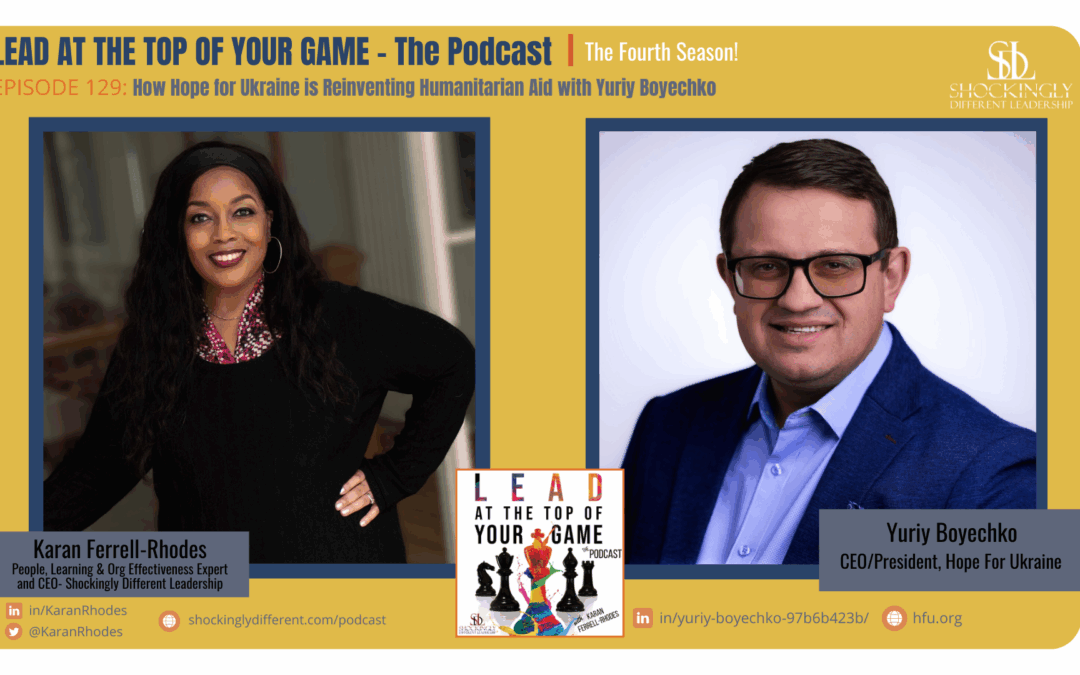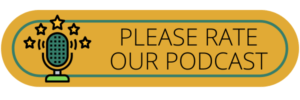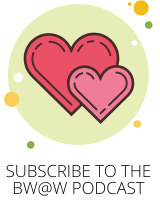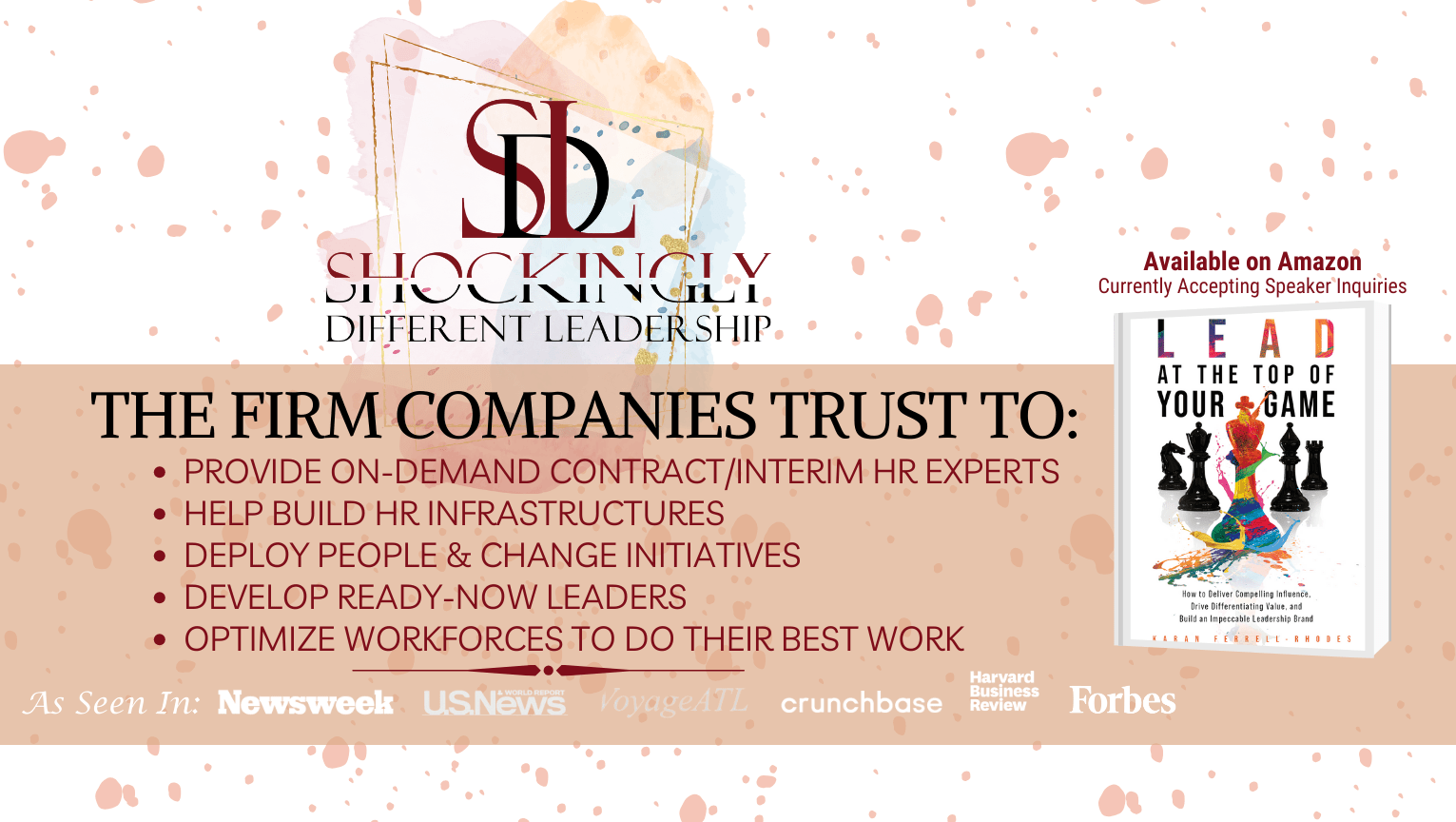IN THIS EPISODE, KARAN FERRELL-RHODES INTERVIEWS YURIY BOYECHKO.
Yuriy highlights the role of impact in driving volunteer motivation and donor engagement, emphasizing the power of communication, transparency, and responsiveness. He outlines strategies for long-term viability, the challenges of operating in a war zone, and his vision to eventually meet all needs on the ground, thereby making the organization’s mission complete.
Yuriy Boyechko, CEO of Hope for Ukraine, shares the inspiring journey behind founding the nonprofit and its rapid scale-up in response to the 2022 invasion of Ukraine. The organization partners with over 100 local groups to deliver food, solar energy, and vital aid.
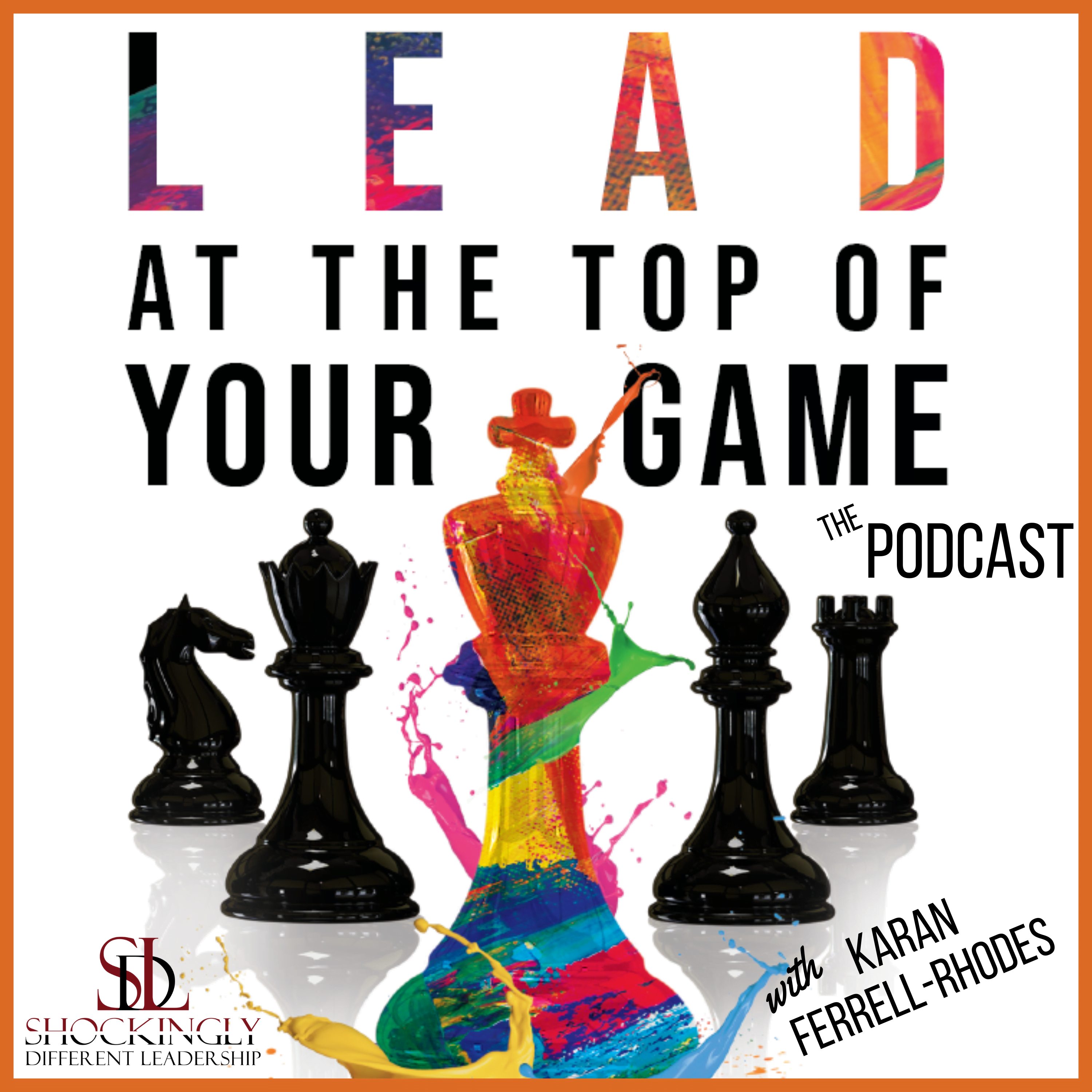
Posted by
SDL Media Team
Rather view our video podcast?

WHAT TO LISTEN FOR:
- What is the mission of Hope for Ukraine?
- When did Hope for Ukraine scale up its operations?
- How does the organization deliver aid in Ukraine?
- What role does impact play in motivating teams and volunteers?
- How does Hope for Ukraine keep donors engaged?
- Why is effective communication essential for an organization’s success?
- What makes Hope for Ukraine different from other nonprofits?
“My number one goal is to work my way out of this job.”
FEATURED TIMESTAMPS:
[02:50] Yuriy’s Personal Life
[04:59] Hope for Ukraine’s Mission and Impact
[08:44] Logistics and Operations of Hope for Ukraine
[14:05] Donor Engagement and Long-Term Viability
[17:00] Building the First Donor Base
[19:12] Signature Segment: Yuriy’s entry into the LATTOYG Playbook: Differentiation and Best Practices
[25:02] Signature Segment: Yuriy’s LATTOYG Tactic of Choice: Leading with Drive for Results
[27:01] Contact Information

ABOUT YURIY BOYECHKO
Born in 1982 in Soviet-era Ukraine, Yuriy was the youngest of six children in a family of a Protestant bishop. At age four, his father was imprisoned for two years for practicing his faith, leaving his mother to support the family alone. The image of his father’s return from prison—shaved, exhausted, but free—left a lasting mark on Yuriy at just six years old.
When Ukraine declared independence in 1991, it was a moment of immense hope. Yuriy spent his school years volunteering in Lviv, driven by a desire to help build a free, democratic Ukraine. In 1999, he moved to the U.S. for college and later earned a Master’s in Media Communication from Regent University in 2005.
After working in media for several years, Yuriy founded Hope For Ukraine in 2016. Today, he and his wife Tatyana are devoted to giving a voice to the unheard—especially children affected by HIV/AIDS and families living in extreme poverty—through medical care, food, and clothing.
LINKS FOR YURIY:
- Website: hfu.org
- LinkedIn: linkedin.com/in/yuriy-boyechko
- Facebook: facebook.com/hope4ukraine
- Instagram: instagram.com/hopeforukraine/
- X: X/hopeforukraine/
ADDITIONAL RESOURCES FOR YOU:


Episode Sponsor
SDL is the go-to firm companies trust when needing to:
- supplement their in-house HR teams with contract or interim HR experts
- implement leadership development programs that demonstrate an immediate ROI and impact on the business

Episode 130 | How Hope for Ukraine is Reinventing Humanitarian Aid with Yuriy Boyechko
Yuriy Boyechko 00:03
When we talking about leadership, specifically in nonprofit sector, I always keep saying that the money will follow impact if. Have impact, the money will follow. If you have impact, then you’re not going to have issues with your teams and with your volunteers, because they are motivated by what they see of the difference you’re making on the ground.
Voiceover 00:03
Welcome to the “Lead at the Top of Your Game” podcast, where we equip you to more effectively lead your seat at any employer, business, or industry in which you choose to play. Each week, we help you sharpen your leadership acumen by cracking open the playbooks of dynamic leaders who are doing big things in their professional endeavors. And now, your host, leadership tactics, and organizational development expert, Karan Ferrell-Rhodes.
Karan Rhodes 00:36
Hello, my superstars. This is Karen, and welcome to another episode of the lead of the top your game podcast. We have a absolutely tremendous guest for today’s show. I hope you’ll join me in welcoming Yuriy, and we can hopefully get his last name right, Boyechko. That’s as close as I’m going to get to it. Let him say it to clarify, but Yuriy Boyechko. He is the CEO and President of hope for Ukraine, which is a nonprofit organization that’s dedicated to supporting those in need Ukraine. And they do a ton of things to help support the Ukrainian population, among which they really focus on, well being everything from basic necessities to education and healthcare and more. If you haven’t had an opportunity to check out the show notes and see the links to his organization, I beg of you to please take a few minutes to do so, because they are doing absolutely fantastic work. And you know, no matter your political affiliation or worldview, we’re all human at the end of the day. And I really thought it was important to really highlight some fantastic leadership and work that is going on to help support the people of Ukraine. And so Yuriy is going to share his story and his organization with us today. So welcome to the podcast, Yuriy.
Yuriy Boyechko 02:03
Thanks for having me. Thanks for having me.
Karan Rhodes 02:05
Awesome. Well, you know, I have a ton to talk to you about and our little time together, but before we dive deep, you know, we always love to learn just a tad bit more about our guests. So for just as much as you feel comfortable, would you mind giving us a sneak peek into maybe your life outside of work.
Yuriy Boyechko 02:22
So I always like to say my life is work and my work is life.
Karan Rhodes 02:29
Love that
Yuriy Boyechko 02:31
I’m a big coffee lower. I’m really like to try different espressos. So that’s something a I’m trying to limit myself to three expresses a day, but I always like just that, try different beans and try from a different makers to see to find those hidden notes. So that’s my hobby, and of course, spending time with my son and my wife, that’s another hobby of mine.
Karan Rhodes 03:00
That’s wonderful. Do you have a favorite brand of espresso you would mind sharing? Or is that too much?
Yuriy Boyechko 03:07
Oh, I actually there’s this one place in New York City and that in East Village, that happened one time we went for dinner lunch with my family, and then we stumble upon this Puerto Rican coffee place, and I never knew that, like, Puerto Rico has such a good beans, and that particular place that express or shot is like, I don’t know what they doing, but every time I’m in a city, that’s it, because after you have A good meal. It’s always need to finish with Express. I don’t know why that helps the digestion of so on my list, I think the Puerto Rican Express is number one for me. For now, I’m trying to find someone who will beat that.
Karan Rhodes 03:56
Sounds like that’s gonna be hard to find that they have a big reputation to try to be yes, yes, awesome. Well, thank you so much for sharing that with us. And so now let’s kind of dive into your background in the organization. I guess the first thing I’d love to better understand is kind of the just a few of the highlights of what led you to become the CEO of hope for Ukraine, and I know I didn’t do it justice. So if you could please tell my listeners a little bit more about what you all are doing and the impact you’re trying to make.
Yuriy Boyechko 04:31
Yeah, so a little bit a background. You know? I actually know I have a background in media and entertainment industry, and finished film school, and then I went into whole reality show based when reality shows used to be a hot, hot thing and a block,
Karan Rhodes 04:47
Wow, yes.
Yuriy Boyechko 04:48
And then, we work in developing different different ideas, and, you know, selling them to network, so on and so forth. But in that for profit world, I always did charitable work. And. Basically, I always wanted to do something that’s going to give meaning to me each and every day, not just making money, right? And I had one time, an idea to start my own nonprofit. Because, I mean, I’m originally from Ukraine, and then I’ve been helping people there ever since I left Ukraine, when in 2009 and then I was like, Why don’t they start nonprofit this way, I know when I donate $100 where those $100 will go to so at least if I’m gonna be donor this nonprofit, let it be so I never gonna forget that day that I was I was in Jersey City, actually, New Jersey, and I pick up my phone and give a call to our lawyer. I was like, why don’t you file for us, for file one, 3c, and he’s like, What are you talking about? Do you know what you get yourself into? This is really hard, hard place to be, you know, profit. And he’s like, why don’t you just find a good nonprofit that works in Ukraine or whatever, whatever you passionate about, and just support them. And I was like, No, Tom, just go ahead and do it. And then he listened to me, and he started it. And then, in the beginning, it was just my hobby, running non profit, because I had a full time job doing everything I was doing. And 2022, happened, right? The full invasion of Ukraine. And then, basically, then it was so much need on the ground that I had to step in into full time role here, right in order to run this and to scale this. So right now, we have one of the largest boots on the ground presence in Ukraine, as far as community workers and volunteers. So basically, we go to every region to every place where people need help. We have a Food Distribution Program that we supply about 1600 families with food kits each and every week. We also started a solar energy Resilience Program where we supply these solar power generators to the communities. I mean, just fact that, you know, there’s some places in Ukraine now closer to frontline that people have no electricity for two plus years, yeah, imagine we lose power for six hours and we lose another hat
Karan Rhodes 07:10
30 minutes. I’m losing my head.
Yuriy Boyechko 07:12
Over there, you have folks who have no power for two plus years. So we start supplying these generators so they can cook on it and have some sort of access to power and also education, medical stuff. We so there’s a lot of programs that we do. People can check on our website, hfu.org, it’s just gonna take an hour to go over everything, so much time, but that’s basically what we do, and we keep on doing every day what we can in order to help those who are really suffering there.
Karan Rhodes 07:46
That’s wonderful. I’m a news junkie, so I follow world news a lot. And seven, you know, following, you know, the war in Ukraine, and it just the resilience of the Ukrainian people is just unimaginable. I’m curious, and I don’t want to get break any security concerns or what have you, but I’m curious, if you are leading the organization from here in the States and send help to Ukraine, or do you partner with people on the ground there, or both?
Yuriy Boyechko 08:17
So we do both. So basically, our headquarters here in New Jersey us, and we collect a lot of eight here, and ship containers full of humanitarian aid each month, sometimes one container month, sometimes two containers. Depends on how much we can collect. And then we have our Ukrainian headquarters in Lviv, Ukraine is right next to the Polish water. So basically all the aid and supplies and food come there, and then we have over 100 local partner groups that we work with on the ground, and they basically come into our warehouse, load up with the aid, and they bring aid to some of the most dangerous parts in the world, I would say, just so we understand some of the areas our folks go. A lot of them, it’s a one way ticket. You know, as far as you don’t know if you’re gonna come back because of the modern warfare and drones and missiles, and, you know, there’s areas where civilians live, that’s who you help. But you basically have, like, a window of three hours to get in there, give them food, give them water, and get out. Because other than that, the challenge starts, but that’s just to show the resilience of these volunteers that we work with, and that leads to the next point, why we were able to do so much, and why we can help so many people, and why these people keep doing what they doing sacrifices in life is because of the impact that they see on the ground. And I think when we talking about leadership, specifically in nonprofit sector, I always keep saying that the money will follow impact if. Have impact, the money will follow. If you have impact, then you’re not going to have issues with your teams and with your volunteers, because they are motivated by what they see of the difference you’re making on the ground. And that’s why these guys, when they go there and they see that, they really bring in help to areas. And this is real help. It’s not virtual, you know? It’s not that, that they see it each and every day. Then they come back and they say, you know, we want to go for another trip. That’s why we are able to what we do. Because we constantly communicate very well, both to the volunteers and also to our shareholders, our donors. Because I always tell everyone you know, I run hope for Ukraine as a publicly traded company that happened to do a charitable work, and we always have to report to our shareholders, which have a donors, right? So I think the key for our work, and why we are who we are, and why I believe we’re gonna grow beyond where we are 10 times. Because I think the model of the way nonprofits are operating now is changing very quick, because in a society where social media drives the agenda, so if you don’t have that strong communication piece, it’s really hard to capture attention of the audience that you trying to target.
Karan Rhodes 11:29
I’m curious, Yuriy, do most of your services go to those that are currently living in Ukraine, or do you also support those surrounding countries that accepted many of the I don’t say refugees, but families who fled like Poland, and you know, some others that they had to resettle as well?
Yuriy Boyechko 11:51
Yeah. So if you look at the breakdown, probably 80% of our work is inside of the country and 20% is outside. So we that makes sense also help Ukrainian refugees who came here to United States, help them settle down here, learn the language, find jobs, and also the ones in Europe, because you talking about massive numbers. After the war, I think 7 million people fled the country. So there’s a lot of folks that definitely need support. So like every summer, for example, we do, like, a summer camps for refugee children in different European countries, because those parents, they flat for them that most of them are single mothers, yeah, and they really cannot afford to pay for the for, like, a summer camp or any type of activity for these children when they’re out of school. So yeah, we do a lot of work, also outside of Ukraine.
Karan Rhodes 12:43
That’s amazing. One of the big things that I was really impressed about with was, you know how you mentioned it earlier, how you consider your donors stakeholders or shareholders, how close you are to your donor community, and how you all do a fantastic job of continued storytelling and keeping them engaged, which you know that’s very hard to do for most businesses. So I know this is an ongoing cause that people feel passionate about, but do you have any concern if someday you know we’re keeping our fingers crossed that there is a true cease fire and withdrawal. How you would be able to keep that engagement up after the war, because people will still be in need in Ukraine. Or have you thought about your long term viability for hope for Ukraine?
Yuriy Boyechko 13:38
You know, I always tell everyone that my number one goal is to work myself out of this job, to be able to fulfill all the need on the ground that we have no one to help, no more, right, right? But that’s more dream, not the reality at the in the world that we live. But I think no matter what’s going to happen on the ground, whether it’s active warfare, like right now, where it’s rebuilding, or when there is peace, you know, and stability, I think as long as we keep on communicating about the areas where we work and we communicate, it Often like, one of the things we do is that we updating our social media every two hours, yeah, with our work on the ground. So if you have a follow up, a Facebook page, Instagram page, or whatever, every two hours, you’re gonna get update from what we’re doing on the ground. And basically that keeps people engaged. And in the end of the day, is why people are connected to the cause, because they feel good themselves once they donate, once they support, once they share. It’s the charitable aspect, you know. It lives. Inside of each and every one of us. And I think if you can connect to them, to the audience, and they feel like they’re part of the community, that no matter what you’re going to do, they will support it right? Because they feel that they are part of that whole structure. And that’s what we work in each and every day so hard to make sure that each and every shareholder feel important. You know, there’s no such thing as a small donation, right? You can get in treatment if you donate $1 and if you donate $10,000 you will get the same response from us. So we are big on just have same playing field for everyone to know that without your support, and without, even if you cannot, donate, just your support moral, you know, prayer or whatever you do, whatever you can be true that you’re going forward that matters, and I think that’s what keep this whole organization together.
Karan Rhodes 15:56
I’m just curious Yuriy, and I don’t know if you you remember, because you all have been established for quite some time. I should know. I know at least since 2016 it might have been before that, but I know at least since that time. Think about when you started Who were your first profile of donors is what I’m trying to say. How did you get the word out about your organization and what you’re doing? Because I’m assuming, when you got your first, I guess, base of donor support, word would spread like it’s a cause I’m passionate about. I’m going to tell my family and friends and, of course, overcome. But how did you get started with your donors?
Yuriy Boyechko 16:33
Honestly, I mean, we did. You know, we did. First of all, we reached out to anyone who have Ukrainian background groups here, local groups, you know, community groups, letting them know what we’re doing. So they connected to our mission, to our vision, right? And then they saw impact, and they start supporting what we do. But the second part came in, I think I mean always coming back to us, using social media very good, and that’s basically the way of the next way of donors really came through that was using, back in the day, we did this thing, you know, we did daily updates on our website, that every day they will go in on our website and they would see any I remember one donor was call us, and he’s like, I Want to speak to someone at home for Ukraine. Call this guy back, and he’s like, you know, I went to your website. I’ve been following this website, but that website gets updated so often. So I wasn’t sure this is real. You know, I wanted to make sure, because every day I would visit that you have some different stories about what you guys do, and I think that’s what really kept people engaged. And then that’s how we were able to build the base. And you know, my entire vision is to really build a large base of small shareholders, the folks who, you know, donate 25 or $50 and then just have a lot of people who support region. This way we don’t have to cater for any specific group, and then we can just do what we do, and people connect with our impact. We can strive,
Karan Rhodes 18:15
Oh, absolutely. And what is hope for Ukraine doing that many other nonprofits aren’t or they’re not falling into their business models aren’t structured. Is it the focus on constant updating? Is it storytelling? Is it branding? Is it social media? How do you all differentiate yourselves other than such a public, well known cause? I mean, I’m sure that helps a bit now. But what do you all do that is different than normal nonprofits?
Yuriy Boyechko 18:45
again, so few things is that we want to make sure that we are very well vetted by outside groups. So if you go to a website, we are 100% charity with charging navigator. We are certified by Better Business Bureau, through by them, so we have all those boxes checked, which is helps a lot, because right now, I think people are much more sophisticated, as far as they will do a lot of background check before they’re gonna write you a check. So you need to make sure that you have a very good background and that anywhere they go to check, like, for example, you know, some people verify charities on Charity Navigator. Other people go to candid, right? Other people go to give.org which is Better Business Bureau, right? So when you start in nonprofit, your number one goal should be to really achieve the highest score you can. Yeah, with these third party wedding organizations, that’s going to help you a lot, right? Once you get that credibility right, that somebody looked into how you handle your business and they see that you’re legit. Then you, the public is going to trust you. And number two is we focus on communication. Because, like I say always, that lifeline of every relationship is communication. Once communication is broken, then things fall apart. So we have a policy where, you know the phone call comes into our office, we have a policy, we will return your phone call 24 four hours after you call us. Our team also emails. Same thing, 24 hours every email have to be answered. And as far as checks, you know one thing…
Karan Rhodes 20:39
Ok, Yuriy, you’re gonna have to tell me the secret to that, because it’s hard, it’s hard for us to keep up in my company with a response rate that quick.
Yuriy Boyechko 20:48
ABC of what they did. We check every morning. Have you checked your email? Do you have any unread email before you do anything, you need to clear out that inbox. If that inbox is not cleared, we’re not moving to anywhere else.
Karan Rhodes 21:05
I mean, you know, we’re laughing about it. But you built that into the culture. It sounds like…
Yuriy Boyechko 21:11
This is the thing is that, because sometimes inbox one day 100 emails,
Karan Rhodes 21:15
I know, right?
Yuriy Boyechko 21:16
And then if you don’t check that next day, you’re gonna be at 300 so it’s the chances of you really taking care of that effectively is going to get smaller and smaller. So that’s why, like every morning, we start with check in boxes. That’s the first thing on everybody’s to do list. And that’s basically how we’ve been building this culture of responding and sending tax receipts. You don’t believe, but I had one time, this one lady, we received the donation from her, and then we send the because we we send the tax receipt as soon as the check comes in, right? So it’s not like we wait in a month or two months and then send as soon as the checks comes in. Whoever donates by check, they get the tax receipt from us right away. So I remember we sent this text receipt this particular person, and then we got the letter back saying, hey, you know, I’ve been donating to so many organizations before, but you guys, the fastest I ever got back, because you did this. This is the second donation and making to hope for Ukraine. You think about it, isn’t it’s not a big deal, right? But for owners, I think for owners, it’s important, because if they took the time to write a check and give their hard earned money to you, they want to hear back as soon, as soon as possible, not like in three months, they have to pick up and call and say, Hey, what happened? You know, did you receive something from me? Right? So I think that’s basically what it is.
Karan Rhodes 22:49
Plus it shows that you have a legit operation. Because I donate a lot my family, I do to a lot of different causes. And quite honestly, once you donate, then you kind of forget about it, unless something comes back or confirmation comes back through, like you said, email or a letter or something that confirmed that funds were received. I love that quick response, because then, like, it’s easy for me to file it, get ready for taxes, you know, that kind of thing. So I love that you all do that, and me personally, when I have a million other things on my list that would help me, encourage me to continue donating. I love it. Well, you already. I mean, y’all are doing some fantastic work. I can’t believe the time flew with us today, but we can’t let you get out of here without asking you our signature question that we always ask our guests and for my newer listeners out there. You may not know, but our firm at SDL did research on leadership execution, what some of the top organizations and leaders, individual leaders across the world do to be successful. As you can imagine, a lot of data, but there were seven buckets of activities. We call them tactics that are used all are equally as important. You just use them at different times, but usually there’s one that really resonates with you. And so Yury was so kind of shared that having a drive for results really resonated with him. And the way we define it is all about being very tenacious about ensuring that your end results are your goals are achieved, even if you have to pivot along the way. And so curious minds want to know. Yuriy, why does having a drive for results? Why does that really resonate with you?
Yuriy Boyechko 24:35
Because unless you have results, you you’re never going to have success and result, that’s what’s creating impact. And impact is creating finances, you know, and finances creating growth. So unless you are driven, and unless you get things done, and I’m all about making every day longer and longer, because when you think about why people. Will lose effectiveness is because they have a lot of white space on that calendar. That’s true. There’s just noise you have, not no activities happening in that time that furthering your goal and furthering your purpose as an organization. So our goal in my personal life to make sure I don’t have no white space on my calendar each and every day and every minute is counting for something. Of course, you need to eat, you need to sleep, which is non negotiable goals. You need to work out. But outside of that, every single day, have 24 hours in your day, and you can do so much more you can fit in five days of work in 24 hours, if you strategize and just absolutely and your calendar correctly. And that’s will basically why results are so important for us as that make sure that calendar is never have white space on it.
Karan Rhodes 25:58
Well, you’re living proof that you can do it and sneak in cup of espresso every now and then, for me, it’s a glass of Chardonnay, but two each his own. I love that. Well, Yuriy, you know you are so kind, we really appreciate the gift of your time. We will have a lot of information about you in our show notes, including your bio and links to where to find you and the organization. But always love to give our guests air time to share as well. So if our listeners are curious of where to find you or your organization, where should they hunt for you?
Yuriy Boyechko 26:34
So you can go to our website, hfu.org, you can find us on Facebook, Hope for Ukraine. You can Instagram, Bluesky, TickTock, X, whatever, wherever you go, just look for Hope for Ukraine.
Karan Rhodes 26:49
Okay, look for hope for Ukraine. Got it all right. Well, thank you so so much for chatting with us today. It was very insightful and inspiring the work you all are doing, and I wish you and your team continued success.
Yuriy Boyechko 27:04
Thank you for having me.
Karan Rhodes 27:06
Awesome, and thank you too, listeners for the gift of your time. As I always say, we know there are literally millions of other podcasts you could be listening to, and we do not take your patronage lightly. All that we do is ask you to like and subscribe on your favorite podcast platform of choice and to share our podcast with just one friend, because by doing so, it’ll help us all to better lead at the top of our games. Thanks so much, and see you next week. And that’s our show for today. Thank you for listening to the lead at the top of your game podcast, where we help you lead your seat at any employer, business, or industry in which you choose to play. You can check out the show notes, additional episodes, and bonus resources, and also submit guest recommendations on our website at leadyourgamepodcast.com. You can follow me on Twitter, Facebook, Instagram, and LinkedIn by searching for the name Karan Rhodes with Karan being spelled K a r a n. And if you like the show, the greatest gift you can give would be to subscribe and leave a rating on your podcast platform of choice. This podcast has been a production of Shockingly Different Leadership, a global consultancy which helps organizations execute their people, talent development, and organizational effectiveness initiatives on an on-demand, project, or contract basis. Huge thanks to our production and editing team for a job well done. Goodbye for now.

Want to be a Podcast Guest?
Check out our guest qualifications and submit our brief form to be considered.
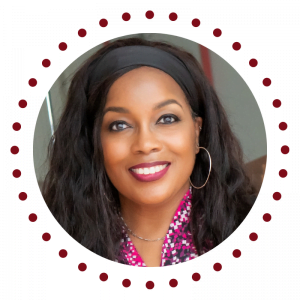
Want Karan to be Your Podcast Guest?
- Blended Workforces & the Gig Economy
- Critical Execution Tactics of High-performing Leaders
- Entrepreneurism & Leading Your Business

Want to be a Podcast Sponsor?
All sponsorships come with a featured spot on show notes pages.
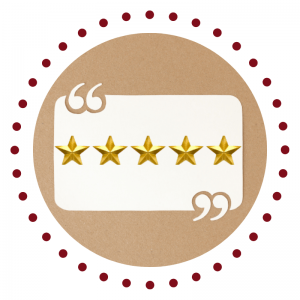
Like the Show? Please Leave a Review
If you like the show, it would mean the world to her if you left a quick review.
Your word is golden, so a HUGE thank you in advance!

#KeepInTouch
via our podcast alerts
Subscribe now to discover why thousands of monthly listeners who are passionate about doing their best work prioritize time each week to listen to the Blended Workforces @Work podcast.
#AboutSDL
#WhereToFindUs
MAILING
4480-H South Cobb Drive
PMB 219
Smyrna, GA 30080
PHYSICAL
2121 NewMarket Parkway
Ste. 108
Marietta, GA 30067
#ContactOptions
Customer Service Email:
service@shockinglydifferent.com
Call or Text:
770-384-1103
#Office Hours
MON-FRI
8:30 AM – 6:30 PM
Weekends By Appointment

